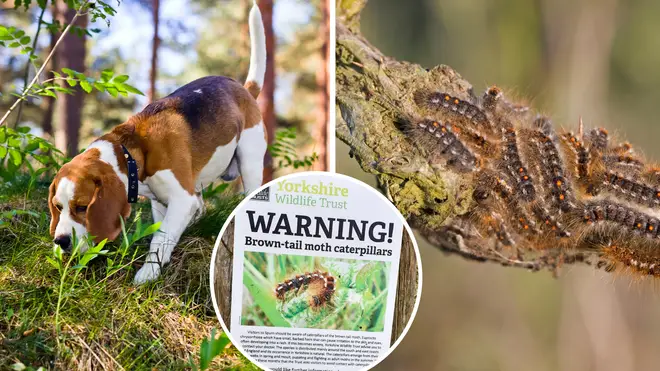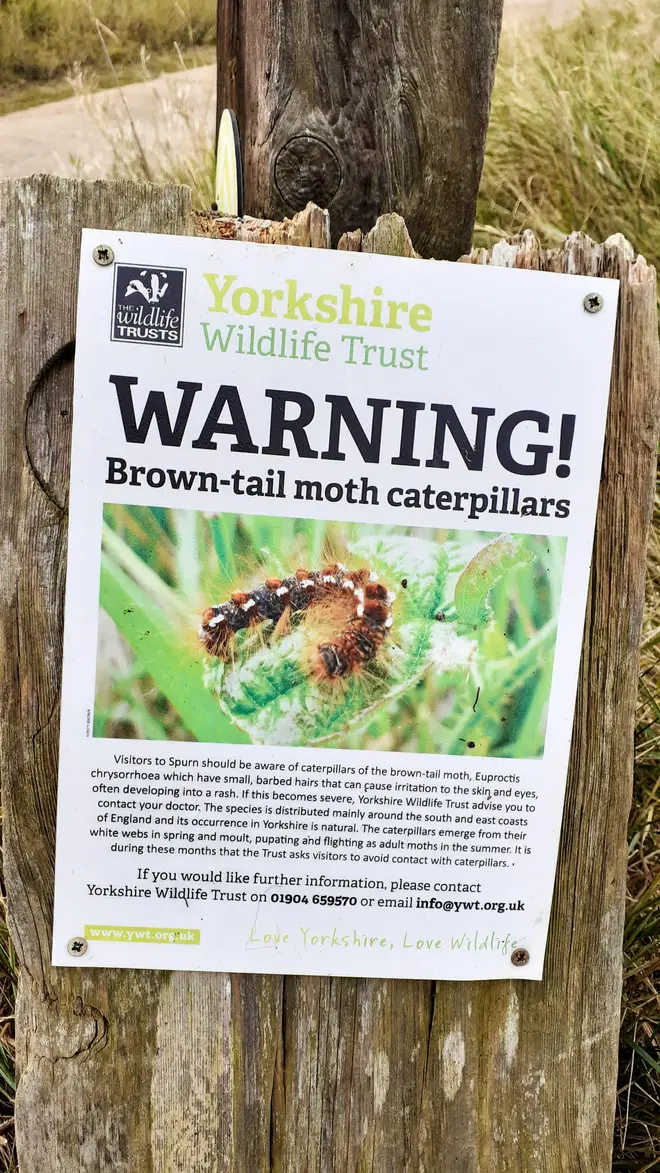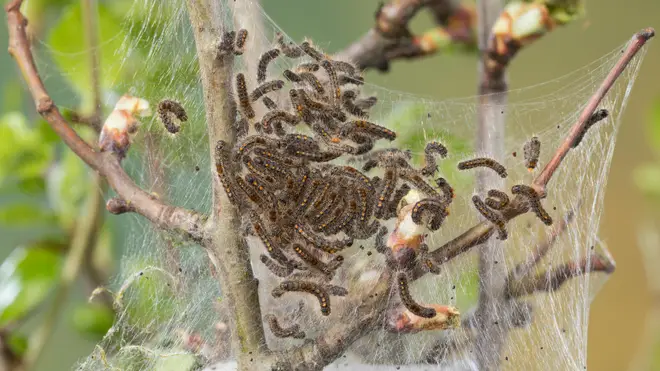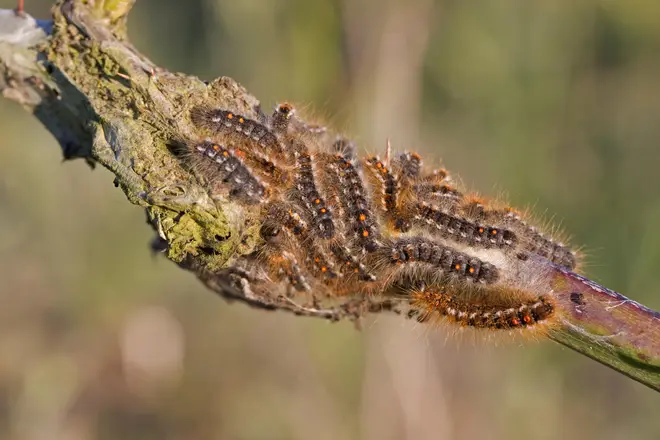On Air Now
Heart Breakfast with JK and Amanda Holden 6:30am - 10am
29 April 2022, 13:41

The 'toxic caterpillars' can cause stomach aches, diarrhoea, and even lesions in dogs if their hairs are ingested.
People with dogs have been warned to stay vigilant while walking their pets after reports 'toxic caterpillars' have reappeared in the UK.
These 'toxic caterpillars' are also known as Brown Tail Moths, and are related to the Oak Processionary Moth.
According to Essex Live, locals have reported seeing the insect on beaches, which could suggest the Brown Tail Moths have reached their most active season.
This would make sense as, according to The Royal Horticultural Society, they are most active around April, May and June.

The RHS explain on their website: "Brown tail moth is an insect native to Britain that has hairy black caterpillars with red and white markings.
"The urticating (have an irritant effect) hairs can cause breathing difficulties and rashes in contact with skin."

The Brown Tail Moth, whose scientific name is Euproctis Chrysorrhoea, pose a danger to curious dogs who have a tendency to sniff around while on walks.
The moths contain toxins which are released via contact or ingestion, and can cause symptoms in dogs such as stomach aches, diarrhoea, and even lesions.
Neil Hutchinson of dog experts Kennel Store told the Daily Record: "When it comes to identifying a Brown Tail Moth, they have some features that make them easy to identify.
"Brown Tail Moths are brown, have a white dotted line down each side, and have two red dots on the back of their tail, making them easily distinguishable.”

He continued: "If you have a dog that has little to no hair on its tummy or muzzle, they could be at risk of breaking out in rashes or dermatitis, if a caterpillar attaches itself to your dog. Fur will mostly protect them from suffering from irritated, itchy skin.
"Dog owners should remain vigilant and avoid beaches and areas that are reporting outbreaks of Brown Tail Moth caterpillars to keep dogs safe.
"If you notice your dogs behaviour or health change, and you suspect they have ingested a Brown Tail Moth caterpillar, we advise taking your dog to visit a vet to get a check-up. Your vet will be able to advise further in terms of treatment and the course of action moving forward."
People should also stay away from Brown Tail Moths as they can cause rashes and difficulty of breathing to humans.